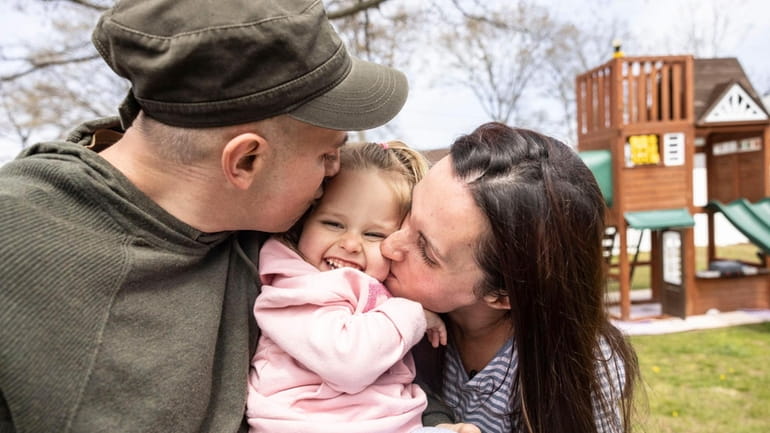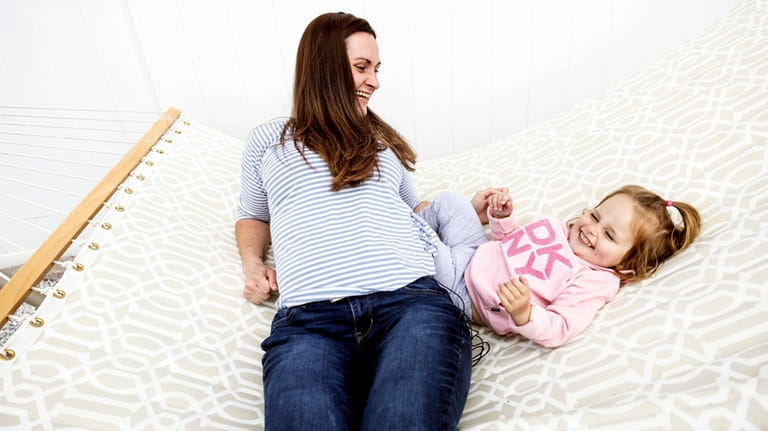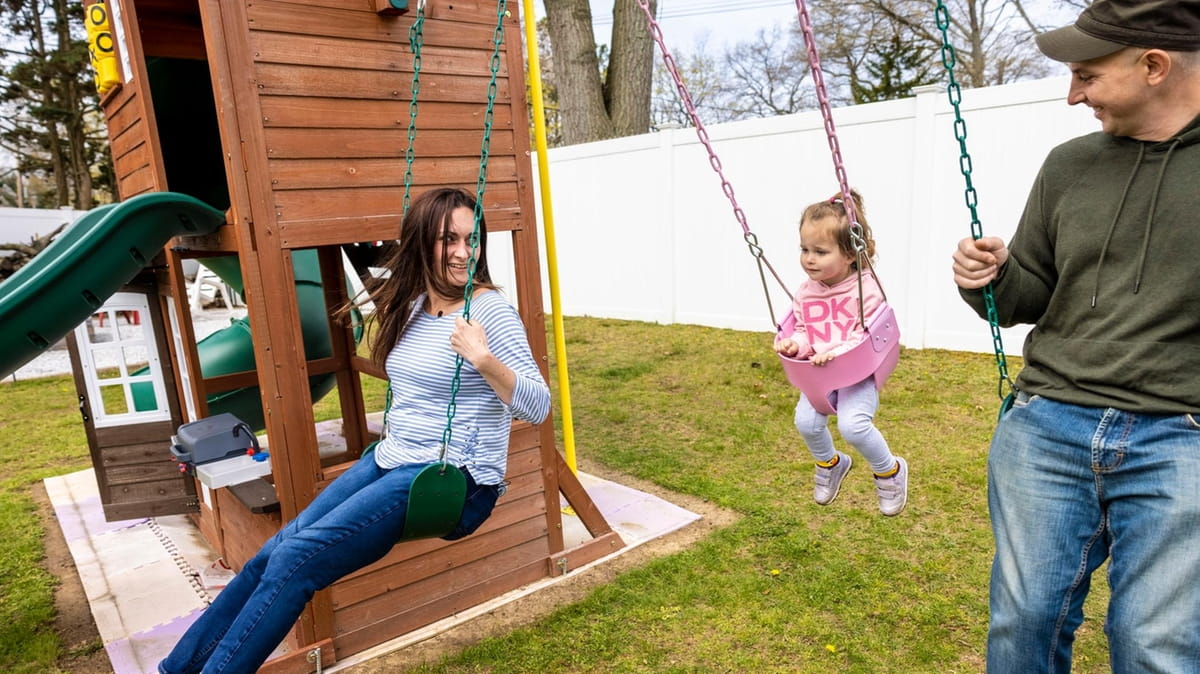Tina Widergren nearly died in 2016 after overdosing on fentanyl. It took four shots of Narcan to revive her. But it was not until 2018 that she decided to confront her addiction and enter rehab.
Four years later, Widergren said, she hasn't relapsed and, with the help of her family, has rebuilt her life. She is engaged to be married, is a mother and has launched a contracting business — her accomplishments a far cry from the days when she'd blow through $1,000 per day on pills or worry that she’d be dead, her ashes sitting in an urn on her mother’s mantle. This Mother's Day, over brunch with her fiance and their daughter, Mackenzie, 2, and her extended family, she will reflect on her recovery journey and celebrate her milestones.
"To be where I am now is surreal," she said. "Never would I have imagined any of this was possible or that my life would look anything like this today."
Widergren, 31, of Ronkonkoma, said that by sharing her story with Newsday, she hopes to break the stigma of addiction and offer hope to others.

Addiction began with injury
Widergren's addiction to opioids began after she was prescribed medication for pain following an ATV accident in 2009. A doctor prescribed oxycodone to help her complete physical therapy, she said, but within six months she started misusing the pills.
“I didn’t have pain,” she said. “I didn’t think about my emotional pain, the physical pain. It was just like, 'Oh, is this what normal people feel like?' "
Widergren began buying pain pills illegally, sometimes swallowing a large number of them "to have a really good day" or just a few to avoid withdrawal symptoms. She switched to heroin after she moved to Florida in 2015 and later changed to the more potent fentanyl.
In early 2018, desperate to escape a physically abusive relationship, she said she called her mother for help.
I want to live. I want to survive.
-Tina Widergren
“I said, ‘I need you to fly me home. I need to get help. I need to go to treatment. … I want to live. I want to survive.’ ”
Back on Long Island, Widergren enrolled in a 28-day inpatient program. She developed coping mechanisms for her addiction and traumas. Group therapy reminded her that she wasn't alone in her struggles. The 28 days were difficult, she said, but she stopped using drugs and never looked back.
Drug abuse "happens more than people could possibly imagine," said her mother, Annemarie Rooney, 54, of Hauppauge. "It happens across the board: rich, poor, minorities.”
Tailoring care to patient's needs
Many addictions start with prescription drugs, said Dr. Youssef Hassoun, the medical director of South Oaks Hospital in Amityville, which offers inpatient and outpatient addiction services.
Hassoun, whose background is in pharmacogenetics, the study of how genes affect the way people respond to medications, said about 20% to 30% of patients who are prescribed opioids misuse them. Of those patients, 8% to 12% develop an addiction, and 4% to 6% transition to heroin. Stories like Widergren’s, he said, can shape the public's perception of drug use and recovery.
While medication-based treatment options are available, he said, drug users often struggle with coping mechanisms. He recommends they develop a list of “caring contacts,” or people they can call when they feel like using.
There’s no “one-size-fits-all” approach to addiction treatment, he said. Programs should be tailored to the patient’s needs.
Just because somebody has substance abuse, it doesn't make them a weakened individual.
-Dr. Youssef Hassoun
“Just because somebody has substance abuse, it doesn't make them a weakened individual,” Hassoun said. “We really have to keep the humanistic approach to this.”
A 2021 state Health Department opioid report shows a total of 458 people in Nassau and Suffolk counties died from opioid overdoses in 2019. Christian Racine, director of clinics for the Family Service League in Huntington, said overdoses involving fentanyl have increased over the past two years.
“Our experience mirrors what’s been reported, and on the national level," he said. "It’s certainly been severe for many years.”
'Want to be the best role model'
For Widergren, getting sober was the first of many steps to rebuilding trust with her family, building a family of her own and realizing long-held dreams.
Memories of her intense detoxification process deterred her from relapsing, she said. She attended Heroin Anonymous meetings after leaving rehab, where she met her fiance, Tim, 43, who is also in recovery.
Dreams of motherhood seemed an unlikely possibility for Widergren, who has polycystic ovarian syndrome, a condition that affects fertility. When she learned she was pregnant in August 2019, five months after her grandmother died, she counted the timing and the pregnancy as a blessing.
Being a mom is like my dream come true.
-Tina Widergren
“Being a mom is like my dream come true,” she said. “[Mackenzie] is my reason for breathing. She is my everything, and then some.”

Tina Widergren with her daughter Mackenzie Koerner, 2, at their Ronkonkoma home. Credit: Newsday/Alejandra Villa Loarca
Motherhood inspired her to become an entrepreneur, she said. In March, Widergren and her fiance launched a home-based business, offering “handyman” services. In the fall, Widergren plans to start nursing classes at Long Island University. In her spare time, she'll also plan a 2025 wedding.
But what keeps her persevering is her daughter.
“She keeps me on the right track, because I want nothing but the best for her,” Widergren said. “I want to be the best role model that I can be.”


